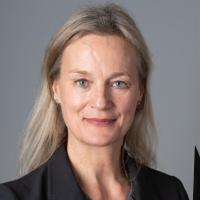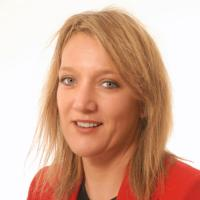A private Science|Business Network series of workshops (12:45 – 17:00 CET)
As underlined in the recent reports from Mario Draghi and the independent expert group chaired by Manuel Heitor, European research and innovation (R&I) continues to suffer from complexity, bureaucratic blockages, and a lack of interoperability between major funding schemes and instruments. With competitiveness and simplification set to define the agenda for the next 5 years in EU policy making, the pressure is on to find effective ways to streamline research value chains, accelerate the pace of knowledge flows from science to industry, markets and society, and to align priorities and implementation criteria between different R&I instruments.
Ursula von der Leyen signalled as much in her political guidelines, stating “I will make speed, coherence and simplification key political priorities in everything we do”. In her mission letter to Ekaterina Zaharieva, the new EU commissioner for start-ups, research and innovation, von der Leyen pointed the way forward in some important areas – such as a European Innovation Act, new strategies for research infrastructures plus start- and scale-up companies – and improving access to Horizon funding for innovative SMEs. However, with Zaharieva due to report into two executive vice presidents, it seems that plenty of scope remains for confusion and fragmentation.
Thus, as the Commission begins its work on the new mandate, including the formal drafting of new legislative proposals for the next Framework Programme and MFF, it is an ideal time for leading stakeholders – who must cope with funding complexities on a daily basis – to debate and identify actionable options that could deepen the value and impact of Europe’s science and tech programmes moving forward.
On February 5, Science|Business will convene members of its international Network for a series of workshops that aim to gather experiences, insights and recommendations that will accelerate simplification and convergence in the R&I funding landscape. NB: The outcomes of the workshops will be synthesised and made publicly available following the Annual Network Conference.
12:45 - NETWORKING COFFEE
13:15 - PARALLEL WORKSHOPS - BLOCK 1
Workshop 1 - Making the connection: Tackling the transferability of research projects
In a future of more integrated research funding across different sectors and programmes, a key priority for the EU institutions will be the transferability of results. If no strong connection exists between different funding streams, scaling the impact of discovery from one field to others will be a hard obstacle to progress, and it will diminish the overall value of innovation. To avoid wasting funding efforts, solid strategies are needed to ensure that creation in one place leads to adoption in others.
Workshop 2 - Partnerships reloaded: What is needed to improve the industrial R&I connection?
There is a growing anxiety in the R&I community concerning the functioning of research partnerships. Open topics for debate include the high level of the proposed TRLs, a perceived lack of transparency, little clarity about the role that universities can play, and the value of participation for SMEs. Considering the way partnerships have been conducted so far, what improvements can be achieved? What would increase the attractiveness of getting involved for participants? From a member state’s perspective, what can the Commission do to improve on this topic? And with new partnerships starting soon, how can the time for takeoff be reduced?
14:15 - COFFEE BREAK
14:45 - PARALLEL WORKSHOPS - BLOCK 2
Workshop 3 - Easy access: facilitating international participation in EU consortia
Cooperation is never easy, even at EU level: when international partners are mixed in, the risks of getting stuck are even increased. With different languages and different systems, barriers to understanding and participation in project consortia can sometimes feel unsurmountable. To make international matchmaking work, where does the EU need to improve the most? How can stakeholders be encouraged to offer proactive guidance for international peers? And which additional steps can international countries take to better grasp how EU research funding work?
Workshop 4 - Empower, Innovate, Transform: How to increase the EIT’s value and impact?
The discussions leading up to the proposal of FP10 have introduced a highly debated topic within the EU research community: what to do with the EIT? Polarising views have emerged, ranging from calls to remove it from the Framework Programme entirely to arguments emphasising its critical role in fostering regional innovation ecosystems and bridging the gap between academia and industry. While the scale and variety of its activities are often misunderstood or underappreciated, including its KIC networks and communities of practice within the EU27 and beyond, the inefficiencies cannot be ignored. The question remains: how can it be reformed to unlock its full potential and become a powerful instrument within a strengthened European Research Area and – potentially – FP10?
15:45 - TRANSITION BREAK
16:00 - Townhall Session – All together now: how will the Commission simplify the alignment and synergies between its R&I instruments?
The competitiveness objective will require the EU institutions to increase the level of their internal cooperation mechanisms. With multiple priorities coming together to increase Europe’s position in the world of technological development, new methods of communal work must be designed. In this search for synergies, how can the EU administration lead the way in creating a whole-of-government approach in R&I matters?
Featured panelists:
- Hilary Hanahoe, Secretary General, Research Data Alliance
- Brit Helle, Director General, Eureka Network
- Matthias Müllenborn, Senior Director Public-Private Partnerships, Novo Nordisk
17:00 - NETWORKING RECEPTION




 A unique international forum for public research organisations and companies to connect their external engagement with strategic interests around their R&D system.
A unique international forum for public research organisations and companies to connect their external engagement with strategic interests around their R&D system.